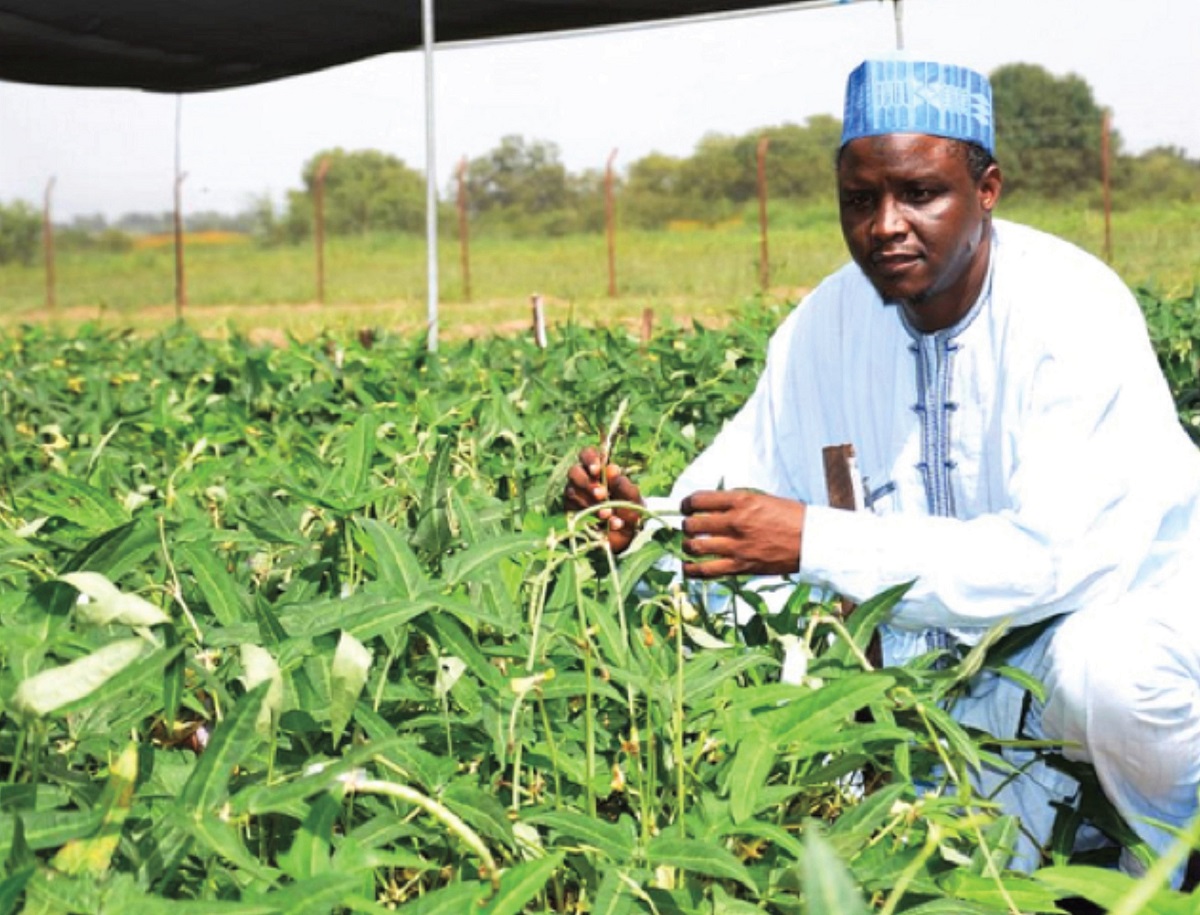
Nigeria Commercializes Pod Borer Resistant Cowpea, its First GM Food Crop
December 18, 2019| |
The Federal Government of Nigeria has approved commercialization of a biotech cowpea variety resistant to pod borers. This development places Nigeria as the first country ever to commercialize genetically improved cowpea.
The National Committee on Naming, Registration and Release of Crop Varieties approved registration and commercial release of the pod borer resistant (PBR) cowpea at a meeting held on December 12, 2019 in Ibadan. The approval is a culmination of more than ten years of intensive trials of genetically modified (GM) cowpea and a breakthrough in eradicating Maruca vitrata pod borer, an insect that can cause up to 80 percent yield loss.
The new variety, named SAMPEA 20-T, was developed by scientists at the Institute for Agricultural Research (IAR), Ahmadu Bello University, Zaria in collaboration with several partners under the coordination of the African Agricultural Technology Foundation (AATF). According to the PBR cowpea project's Principal Investigator Prof. Mohammad Ishayaku, SAMPEA 20-T is high yielding, early maturing and also resistant to Striga and Alectra, two notorious parasitic weeds that are a major constraint to cowpea production in most producing areas in Nigeria and other dry savannah regions. "The protein and nutrients' content of variety SAMPEA 20-T is the same as that of other conventional varieties meaning that the Bt gene that was introduced into the variety has no negative influence on the nutritional composition of both grain and fodder," said Prof. Ishiyaku.
AATF Executive Director Dr Denis Kyetere thanked the Federal Government of Nigeria for releasing the new cowpea variety saying it showed its commitment towards improving the livelihoods of smallholder farmers. "Cowpea farmers have had to endure difficult farming conditions that required them to spray their crop 6-8 times, posing health risks," said Dr. Kyetere. PBR cowpea will contribute to addressing the national cowpea demand deficit of about 500,000 tonnes and improve the national productivity average of 350kg/hectare.
For more information, contact Prof. Mohammad Ishiyaku at mffaguji@hotmail.com.
| |
You might also like:
- Nigeria Moves Forward to Bt Cowpea Commercialization
- Nigeria Approves First GM Food Crop for Open Cultivation
- Pocket K No. 6: Bt Insect Resistant Technology
Biotech Updates is a weekly newsletter of ISAAA, a not-for-profit organization. It is distributed for free to over 22,000 subscribers worldwide to inform them about the key developments in biosciences, especially in biotechnology. Your support will help us in our mission to feed the world with knowledge. You can help by donating as little as $10.
-
See more articles:
-
News from Around the World
- Nigeria Commercializes Pod Borer Resistant Cowpea, its First GM Food Crop
- Scientists Discover Corn Gene for Abundant Kernels
- Bt Eggplant Can Boost Marketable Yield by 192% in PH
- Philippines Approves Golden Rice for Direct Use as Food and Feed, or for Processing
- Agri-biotech Vital for Future Food Security, Pakistan S&T Minister Declares
- Rothamsted Research Study Finds European Wheat Can Yield Far More Than Current Production
- Research Team Discovers Genes Driving Plant Architecture
-
Research Highlights
- New Eco-friendly Protein Antibiotics Fight Off Crop Diseases
-
Plant
- New Methods Promise to Speed Up Development of New Plant Varieties
- Rice Scientists Use CRISPR-Cas9 to Develop High-yielding Semi-dwarf Rice Lines
-
Read the latest: - Biotech Updates (December 17, 2025)
- Gene Editing Supplement (December 17, 2025)
- Gene Drive Supplement (February 22, 2023)
-
Subscribe to BU: - Share
- Tweet

